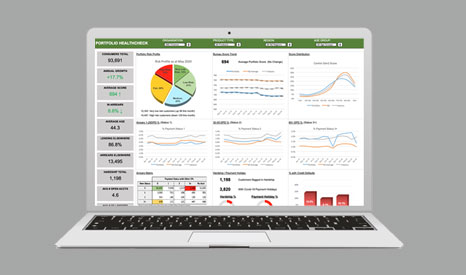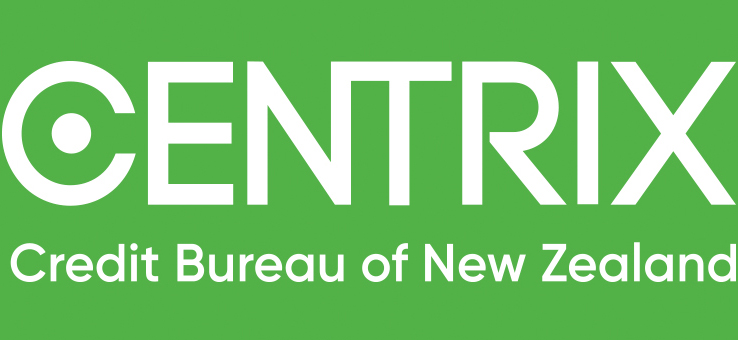Optimising credit strategies

Operating in an unpredictable environment
In a typical – and more predictable – business environment, lenders tend to focus their energies on acquiring new customers.
But in this post-COVID-19 world, predicting the risk associated with a customer has become more difficult – we’re operating in an entirely new environment, so what has gone on before could have very little bearing on a customer’s future capacity to make payments.
It makes sense in this unpredictable business environment to focus attention on optimising and de-risking customers at every stage of the lifecycle, not just at acquisition. By using comprehensive financial data, you can proactively manage every stage – make smarter lending decisions, spot at-risk accounts early, offer support where it’s needed to help customers avoid defaulting, and implement collections early so you’re first in the queue for repayment. Here are some of the strategies that can help you do that.
- Use data-modelling to assess applicants
Credit scores are a good indicator of the risks associated with a new customer, however, as we are currently experiencing volatility in the market, stress-testing applications by modelling various scenarios will better inform lending decisions. This is something that Centrix can provide using data models and insights from across the full financial landscape. Having this modelling will allow you to say yes to applications from new and existing customers more quickly while minimising your risk.
- Proactively support at-risk customers
For many customers, financial struggles will be temporary, as they find new work or downscale their lifestyle. Unfortunately for some, these finite periods can create long-term pain, for them and their creditors. That’s because many consumers have little awareness of their options, and typically will respond by avoiding their growing money worries, rather than taking practical steps to manage them. That means creditors will often not hear about customers’ financial difficulties until they default – by which time, it’s generally too late to do anything to help.
If instead, you had a holistic view of your customers’ financial health, you could spot red flags early – perhaps they increase their credit card limits, or miss a payment on a loan? These behaviours are early indicators of financial distress. Proactively contacting your customers and offering suggestions and solutions isn’t just customer service at its most excellent, it could also be key to helping customers weather the temporary financial storm, so they remain a reliable and valuable part of your portfolio.
- Collect and recover early
In an environment where thousands of people who once held ‘rock-solid’ jobs are suddenly unemployed, defaults amongst some customers are unavoidable. In these scenarios, it’s important to get out in front of the default – spotting it early is key, so you can begin the collection process and get in front of the queue for payment.
As those unfortunate customers creep towards insolvency, there will inevitably be creditors who aren’t repaid – at least in the short term. The continued stability of your business depends on protecting your cash flow by ensuring you’re one of those who’ll get paid. Having a deep understanding of your portfolio and the holistic situation of each customer will help inform your approach.
The critical role of comprehensive credit reporting
The success of these three proactive customer management strategies – and your business – relies on one thing: information. Analytics, with information pulled from multiple touchpoints, will deliver the data you need to keep your portfolio in good health – and avoid creating long-term debtors.
This holistic view will also let you analyse and optimise aspects such as borrowing terms, credit limits and opportunities for cross-selling and upselling, minimising risk and maximising return and profit.
The Centrix Portfolio Healthcheck compares your portfolio performance against a wide range of key indicators. It uses datasets across multiple industries, including telecommunications and utilities, traditional banking and finance. This gives you a broad picture of your portfolio performance and risk status. Our reporting offers a clear and simple view with early-warning indicators of at-risk accounts. The health check also gives you a top-line view of your portfolio – you can segment customers, follow trends in improvement or decline, and drill down by criteria like region or age. With informative graphs automatically produced, the health check reporting can be slotted straight into board reports.
The Centrix alert monitoring system is an extremely useful lead indicator, which is triggered by significant events – missed payments, deteriorating risk scores or hardship indicators, for example. This allows you to take immediate action and apply different strategies depending on the type of trigger event. The service is configurable, so you’re alerted only for actionable events.
Share and strengthen your data
To access this incredibly important data, you’ll need to contribute your own. Comprehensive Credit Reporting is our fastest growing dataset, with more than 50 companies now participating and accessing this key risk data over and above the standard credit reporting information. In today’s economic climate, it’s more important than ever to be able to access this information. By sharing your customer information, you help strengthen the overall data set, assisting all contributors to make better-informed lending and collection decisions, and ultimately support consumers to manage their debts and repayments. This information is stored and accessed with rigorous adherence to privacy and Credit Reporting Privacy Code requirements.
Know your customers
To keep your lending business healthy in these uncertain times, you need a detailed array of information about each of your customers and new applicants. That means using data-modelling to give you insight into an applicant’s full financial picture, being proactive to support customers at risk, and getting to the front of the payment queue by spotting impending defaults.
A wide range of comprehensive data from multiple industries as provided by Centrix will let you make smarter lending decisions, know your customers better, and even help them before they get into serious difficulty.
To learn more about our Portfolio Healthcheck or alerts monitoring – get in touch on 0800 236 874.
